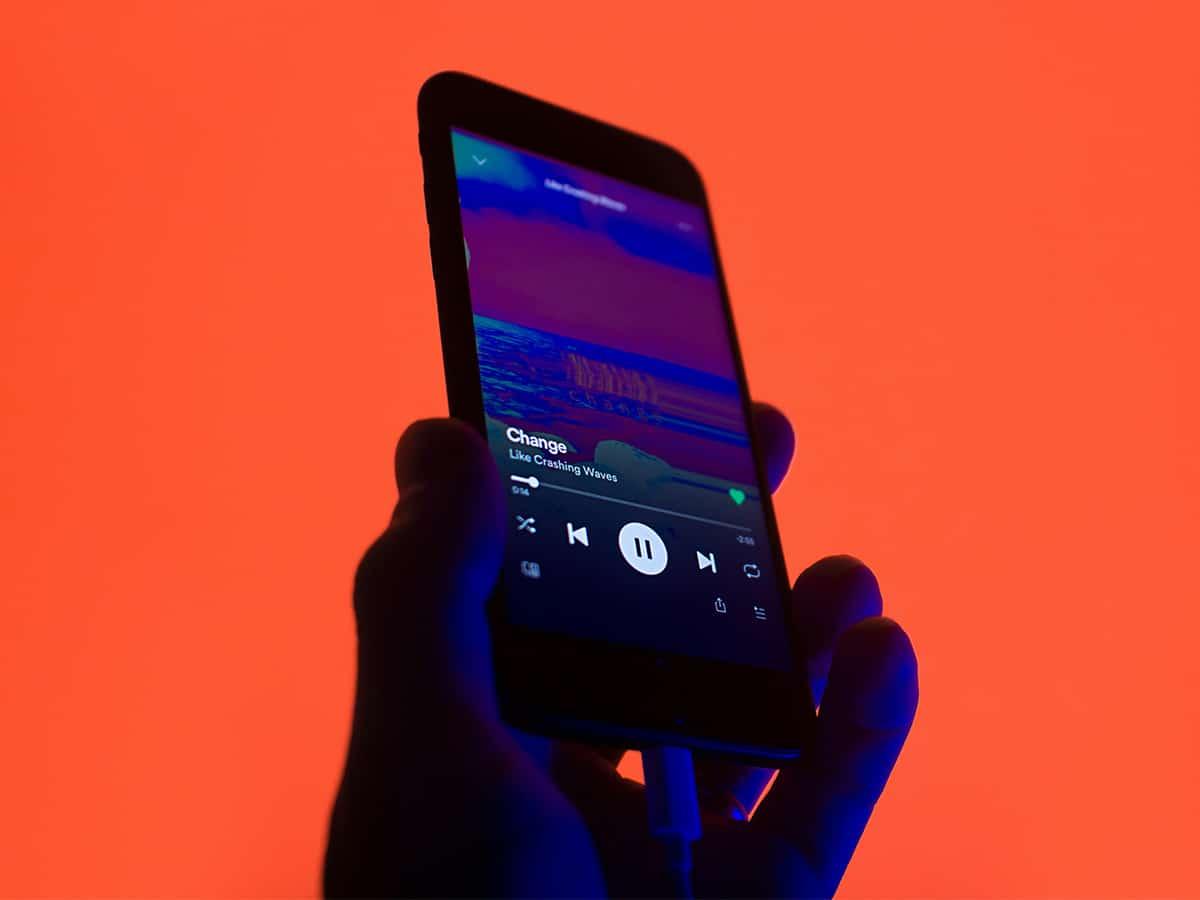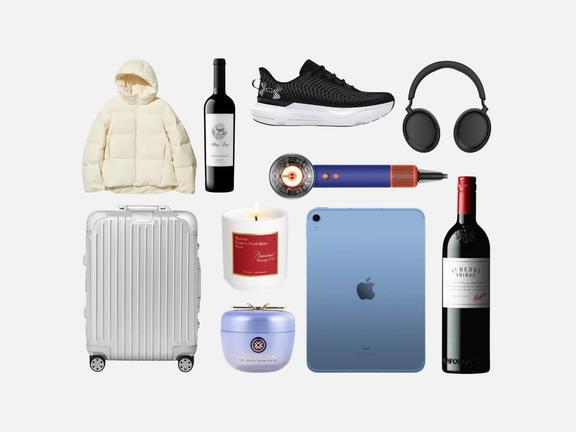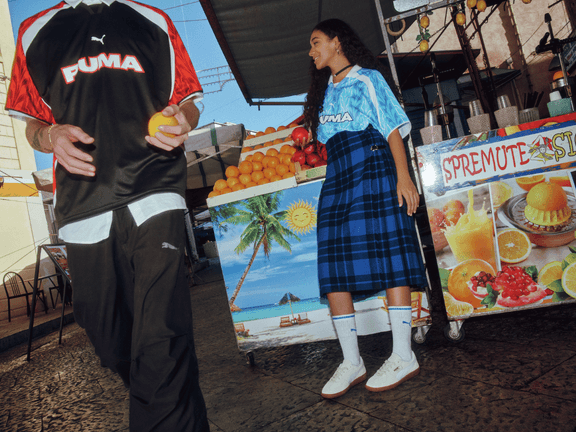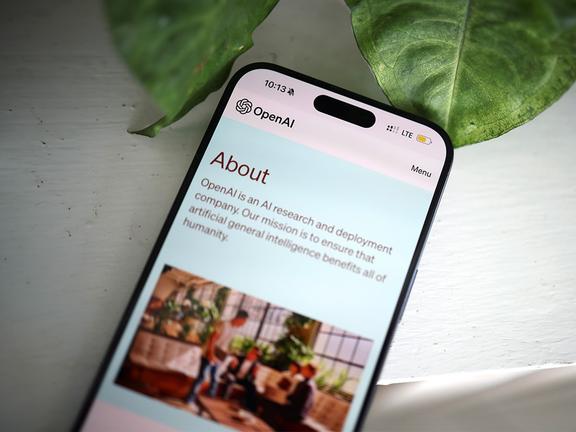The recent and massive AI boom has companies scrambling to bring some sort of AI magic or feature to their product offerings, and music streaming giant Spotify is no different. Building on its AI DJ feature from last year, Spotify is now launching a beta tool that lets users type in a description (like “focus music for studying”) and the AI generates a playlist based on their request.
Aptly called “AI Playlist,” the new feature is initially rolling out only to Spotify Premium subscribers on Android and iOS and is currently available only in Australia and the United Kingdom.
Spotify’s AI Playlist beta works similarly to how you interact with AI chatbots like Open AI‘s ChatGPT or Google‘s Gemini. Describe the mood you’re after, like “an indie folk playlist to give my brain a big warm hug,” or “relaxing music to tide me over during allergy season,” and Spotify will generate a 30-song playlist to match your vibe. You can then tweak the results with additional prompts like “more relaxing” until you’re satisfied with the playlist.

“Whether you’re a beginner or an expert playlist creator, AI Playlist pairs our powerful personalization technology with AI to deliver that perfect musical mix, just for you,” said the Swedish company in their official news release. Spotify expands the prompt options beyond feelings and themes, allowing users to reference places, animals, activities, movie characters, colours, or even emojis! However, the company suggests that the “most successful playlists are generated with prompts that contain a combination of genres, moods, artists, or decades.”
To make these playlists truly yours, Spotify uses large language models (LLMs) to help them figure out what you want from your prompts. The company then leverages its personalization technology, including listener history and preferences, to curate a unique AI-generated playlist.
The app also uses various third-party tools to power its AI and machine learning features. But Spotify’s AI Playlist isn’t quite there yet. As with any new AI product, it has some limitations. For example, it can’t understand prompts unrelated to music, like current events or specific brands.
As Spotify puts it, “While it’s designed to be fun, the tool is still in beta and won’t produce results for non-music-related prompts, like current events or specific brands. We also have measures in place around prompts that are offensive—so please prompt responsibly!” As previously said, Spotify’s AI Playlist is still in beta in Australia and the UK and is only available to Premium subscribers. There’s no word yet on when a stable release will happen, but the company says they’ll “continue to iterate on this new feature” in the coming months to improve it for listeners.
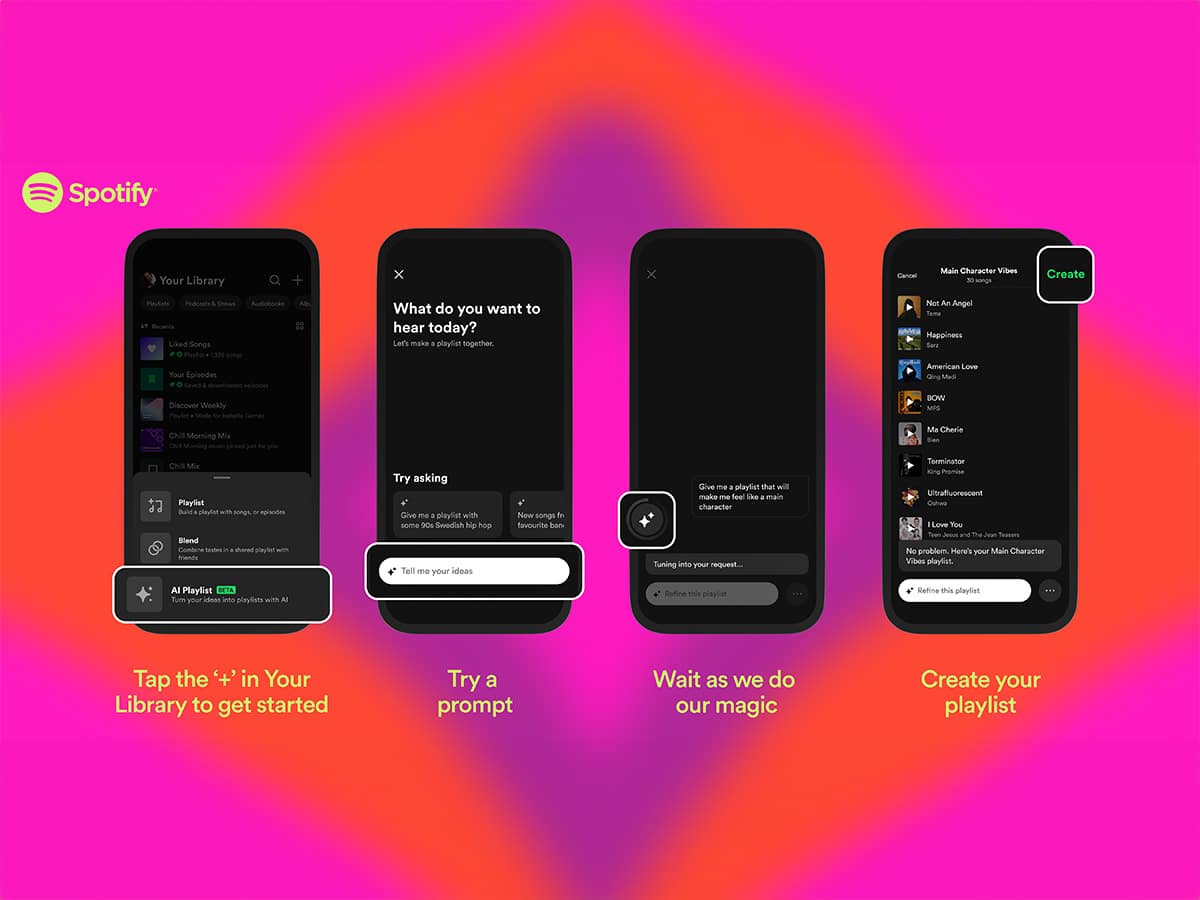
How to Make an AI Playlist on Spotify
If you’re interested in trying Spotify’s new AI Playlist feature, here’s how to get started:
- Open the Spotify mobile app and tap “Your Library” (bottom right).
- Click the “+” button (top right) and select “AI Playlist.”
- Describe your mood or activity with a text prompt to create a playlist. Such as, “Uplifting electronica for a morning run” or “Relaxing piano for a rainy day.”
- Preview each track and remove any you don’t want. You can also fine-tune the playlist to your exact mood. Just tell AI Playlist what you’re looking for by typing simple phrases like “More energetic tracks” or “Less upbeat.”
- Tap “Create” to save your AI-powered playlist in Your Library.
Note: You’ll need a Spotify Premium subscription and be located in either the UK or Australia.


